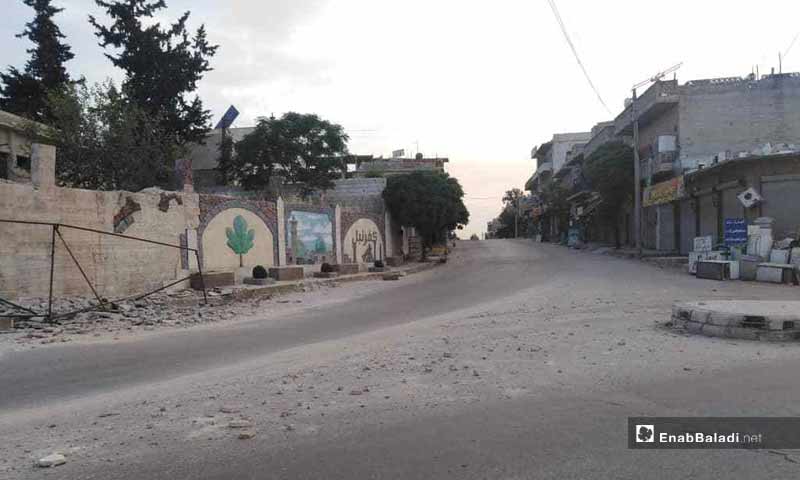



Idlib – Since April 26, the city of Kafranbel in the southern Idlib countryside has witnessed constant bombing by the Syrian regime and the Russian air force. This has led the Local Council to declare it a devastated city on May 31.
According to what locals told Enab Baladi, the bombing did not only kill and injure many but after reaching public and service facilities and obstructing daily life, it led to mass displacement.
It is difficult for people in Kafranbel to ignore that there is not enough bread at a time where most people are too afraid to visit bakeries. On top of being regular targets for bombing, the decline in the support of some non-governmental organizations has led to a shortage in the raw material for bread.
“We are suffering from a serious crisis in providing bread, especially after our contract ended with the People In Need organization that supported the bakeries for three months,” said Ahmad Al-Dany, who is responsible for production in one of the bakeries in Kafranbel.
Flour and raw material are secured on an individual basis in order to provide as much bread as possible for people in the city and its surrounding towns. It is then distributed to residents who have the required license to receive loaves of bread in each neighborhood. The displacement of some license-holders has made the crisis even worse for people who became unable to receive their portions.
According to Walaa Al-Zaatour, a resident of the city who chose to remain, the displacement of business owners has not only led to a shortage in bread but also in other food items, as well as in electricity, all of which are virtually non-existent today. This has forced people in the city to supply their needs from neighboring towns.
Many residents have remained in the city despite the harsh conditions and the shortages in basic necessities. Walaa explained her and her family’s decision to stay to Enab Baladi saying, “We decided to stay in our house despite the bombing as we have nowhere else to go.”
She then added, “I don’t deny the fear that we live in every day, sitting in the basement to shelter from the bombing.”
The city was declared “devastated” for the first time since the conflict began, after 40 people were killed and about 100 were injured, vital facilities were destroyed, three hospitals and the civil defence ceased operations, 7 schools and 4 mosques were destroyed, and 80% of the population was displaced.
According to the most recent statistics by the city’s Local Council, the city had around 60,000 inhabitants, 40,000 of whom were local inhabitants while 20,000 were IDPs.
Fadi al-Khatib, director of the technical office and public relations in the Council told Enab Baladi about the measures the Council is currently taking in order to continue some of its projects. The most important of these projects are securing power generators and cleaning services for the families remaining in the city.
Al-Khatib added that the power generators are sustained by the fees people pay, and this puts it at threat of ceasing operations in light of the mass displacement.
According to al-Khatib, the Council works to secure the needs of the displaced people from nearby areas, and this occurs in coordination with the local councils in those areas.
On May 31, the Council called for the establishment of a special security force in order to protect the properties of the displaced people, pending their return to the city.
if you think the article contain wrong information or you have additional details Send Correction